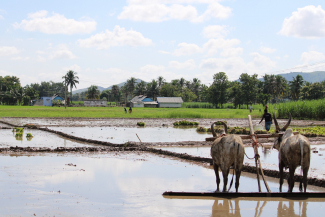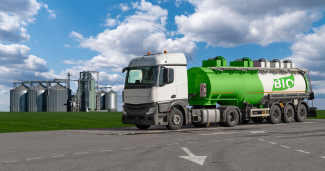FILTER
Displaying 41 - 50 of 197 publications
Most of the empirical literature assessing the impacts of climate change on agriculture has modeled crop yields as a function of the levels or deviations in the growing-period rainfall. However, an…
| Peer Reviewed | IndiaAbstract This paper studies the impact of high global rice and wheat prices on household welfare in India. I use the 2007–08 surge in global food prices and household share of area under rice and…
| Peer Reviewed | IndiaAbstract This paper proposes new composite measures of relative and dynamic state performance to improve governance and delivery of public programs in developing countries with a federal structure. We…
| Peer Reviewed | IndiaThis study has assessed the impact of crop insurance vis-à-vis irrigation on farm income and its higher-order moments. The study utilizes nationally representative farm survey data from India and…
| Peer Reviewed | IndiaPolicy expectations from biofuels have been a widely contested issue. Lately, the risks and uncertainties associated with the unintended consequences of biofuels in terms of food and land-use changes…
| Peer Reviewed | IndiaIn much of the developing world, cooking accounts for most of women's time in home production. Does reliance on biomass for cooking drive this time burden? To assess time-savings from shifting towards…
| Discussion Paper | IndiaA long history of empirical research has focused on testing whether and when household consumption and production decisions are separable. The underlying premise is that if markets were perfect…
| Other Publications | IndiaAbstract The global output of food staples is far more stable than most individual nations' outputs, but does this lead to consumption risk sharing? This paper applies tools from the risk sharing…
| Peer Reviewed | IndiaTraditional discussions of the relationships between energy, carbon dioxide (CO2) emissions and human development fail to expose within country energy and CO2 emissions inequality. This work seeks to…
| Peer Reviewed | India
WE find that construction of toilets reduces sexual assaults on women, but do not discern consistent changes in rapes. Our findings for sexual assaults are robust to a variety of controls...
| Peer Reviewed | India
